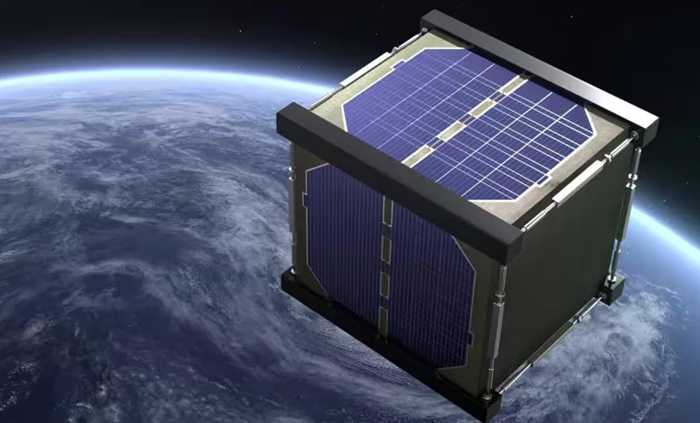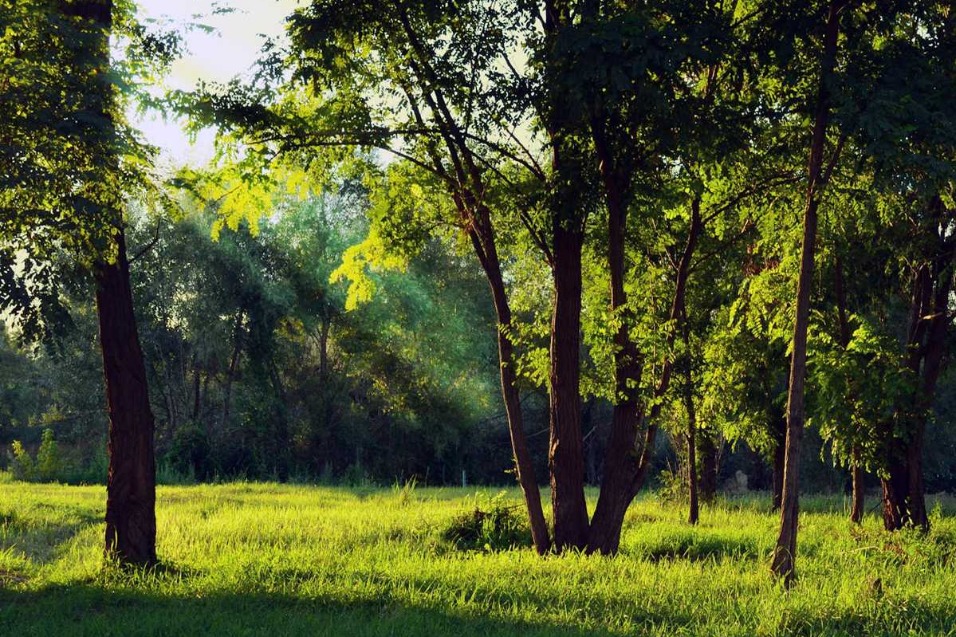日本研發出世界首顆木制衛星 使用后不會造成太空污染 Japan to launch world’s first wooden satellite to combat space pollution
中國日報網 2024-02-18 16:04

隨著太空中的衛星越來越多,太空污染已經成為不可忽視的問題。為此,日本科學家研發出了世界首顆木制衛星,這種衛星在完成任務重新進入大氣層燃燒時,只會產生一點可生物降解的灰。

Japanese scientists have created one of the world’s most unusual spacecraft – a tiny satellite that is made of timber.
日本科學家制造出了全世界最獨特的航天器——用木材做成的微型衛星。
The LignoSat probe has been built of magnolia wood, which, in experiments carried out on the International Space Station (ISS), was found to be particularly stable and resistant to cracking. Now plans are being finalised for it to be launched on a US rocket this summer.
這枚名為LignoSat的航天探測器是用木蘭木制成的,在國際空間站上開展的實驗中發現,木制衛星特別穩定,也不容易開裂。現在計劃今年夏天將這顆木制衛星放在美國火箭上發射出去,目前該計劃還未最終敲定。
The timber satellite has been built by researchers at Kyoto University and the logging company Sumitomo Forestry in order to test the idea of using biodegradable materials such as wood to see if they can act as environmentally friendly alternatives to the metals from which all satellites are currently constructed.
這顆木制衛星是由京都大學的研究人員和伐木企業住友林業公司聯手制造的,目的是測試木頭這種可生物降解材料是否能夠作為替代當下用來制造所有衛星的金屬材料的環保選擇。
"All the satellites which re-enter the Earth’s atmosphere burn and create tiny alumina particles, which will float in the upper atmosphere for many years,” Takao Doi, a Japanese astronaut and aerospace engineer with Kyoto University, warned recently. “Eventually, it will affect the environment of the Earth.”
日本宇航員、京都大學航天工程師土井隆雄表示:“所有重新進入地球大氣層的衛星都會燃燒并產生氧化鋁微粒,這些微粒會在高層大氣中飄浮許多年,最終會對地球環境造成影響。”
To tackle the problem, Kyoto researchers set up a project to evaluate types of wood to determine how well they could withstand the rigours of space launch and lengthy flights in orbit round the Earth. The first tests were carried out in laboratories that recreated conditions in space, and wood samples were found to have suffered no measurable changes in mass or signs of decomposition or damage.
為了解決這一問題,京都大學的研究人員設立了一個項目來評估各種類型的木材是否能很好地承受太空發射以及繞地飛行漫長旅途的強度。第一批測試是在還原太空條件的實驗室中進行的,研究人員發現木材樣本的質量沒有明顯改變,也沒有呈現出分解或毀壞的跡象。
"Wood’s ability to withstand these conditions astounded us,” said Koji Murata, head of the project.
該項目的負責人村田浩二表示:“木材在這些條件下的抗壓能力讓我們感到震驚。”
After these tests, samples were sent to the ISS, where they were subjected to exposure trials for almost a year before being brought back to Earth. Again they showed little signs of damage, a phenomenon that Murata attributed to the fact that there is no oxygen in space which could cause wood to burn, and no living creatures to cause it to rot.
在測試結束后,木材樣本被送到了國際空間站,在那里木材樣本暴露在太空環境下進行了將近一年的測試才被送回地球。這一次木材樣本依然沒有呈現出多少損壞的跡象,村田浩二將這一現象歸結于太空中沒有導致木材燃燒的氧氣,也沒有導致木材腐爛的生物。
Several types of wood were tested, including Japanese cherry, with wood from magnolia trees proving to be the most robust. This has now been used to build Kyoto’s wooden satellite, said Murata.
研究人員測試了包括日本山櫻木在內的幾種木材,事實證明木蘭木是最堅固的。村田浩二指出,當前京都大學的木制衛星就是用木蘭木制作的。
Murata added that a final decision had still to be made on the launch vehicle, with choices now narrowed down to a flight this summer on an Orbital Sciences Cygnus supply ship to the ISS or a similar SpaceX Dragon mission slightly later in the year. It is expected that the probe – which is the size of a coffee mug –will operate in space for at least six months before it is allowed to enter the upper atmosphere.
村田浩二補充道,是否將木制衛星投入生產還需要最后的測試才能做決定,眼下有幾個測試選擇,其中就包括今年夏天讓木制衛星搭載“天鵝座”貨運飛船前往國際空間站,或在今年晚些時候搭載龍飛船去太空。這枚只有咖啡杯大小的探測器預計將在太空運行至少6個月再返回高層大氣。
If the LignoSat performs well -during its operation in orbit, then the door could be opened for the use of wood as a construction material for more satellites. It is estimated that more than 2,000 spacecraft are likely to be launched annually in coming years, and the aluminium that they are likely to deposit in the upper atmosphere as they burn up on re-entry could soon pose major environmental problems.
如果LignoSat探測器在軌運行良好,木材將會正式獲批成為衛星的建造材料。據估計未來每年將會建造超2000枚探測器,這些鋁制探測器重新進入地球大氣時燃燒后留在高層大氣中的氧化鋁顆粒物將會造成嚴重的環境問題。
Recent research carried out by scientists at the University of British Columbia, Canada, revealed that aluminium from re-entering satellites could cause serious depletion of the ozone layer which protects the Earth from the sun’s ultraviolet radiation and could also affect the amount of sunlight that travels through the atmosphere and reaches the ground.
加拿大不列顛哥倫比亞大學的科學家最近開展的一項研究發現,衛星重新進入大氣時留下的鋁離子將會導致隔離太陽紫外線的臭氧層嚴重耗損,沒有了臭氧層,穿過大氣層并到達地面的日照量也會增多。
However, this should not be a problem with satellites built of wood, like LignoSat, which, when it burns up as it re-enters the atmosphere after completing its mission, will produce only a fine spray of -biodegradable ash.
但是,像LignoSat這樣的木制衛星就不會產生這種問題,在完成任務重新進入大氣層燃燒時,它只會產生一小把可生物降解的灰。
英文來源:衛報
翻譯&編輯:丹妮
審稿:潘一僑、齊磊

















 英語點津微信
英語點津微信 雙語小程序
雙語小程序